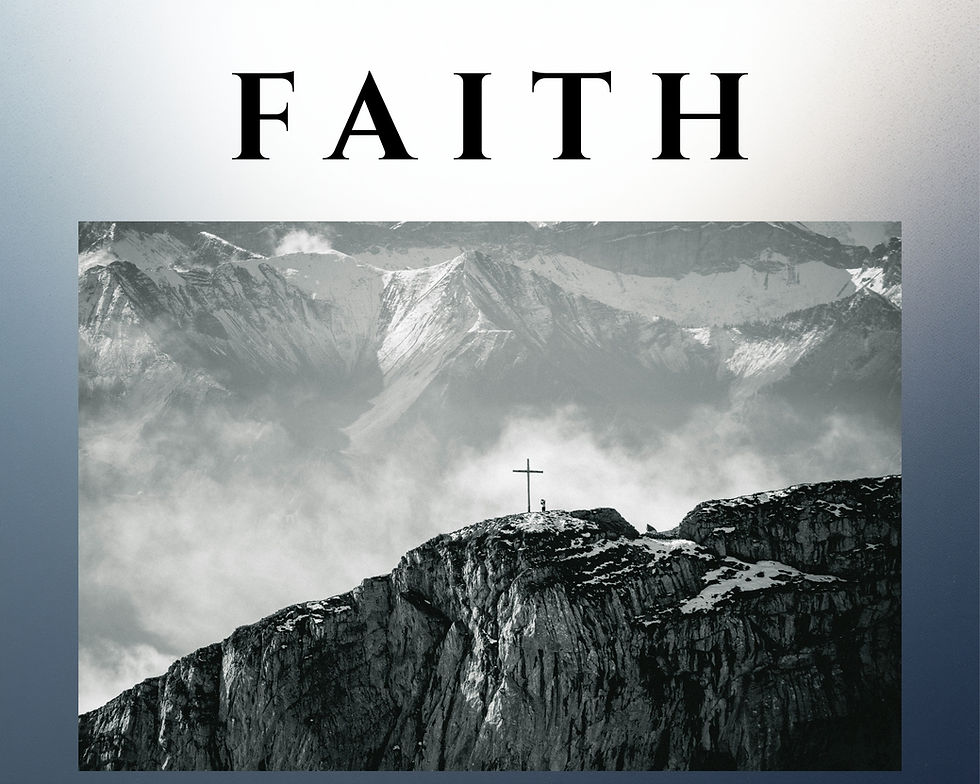Not Losing Our Story
- fathermark

- Jan 4, 2022
- 3 min read

Historically, the Church has found that the greatest way to spread the faith and maintain the faith is to tell the story. And culturally, if the Christian story can supplant or dominate all the other cultural myths and stories of a people, then the Gospel can spread more easily. It's rather ironic that the church sought to supplant the old pagan myths associated with the winter solstice and the new year with the story of the birth of Christ. For now, the Christian story has in turn been supplanted by the ho-ho-ho story of Santa Clause – at least in terms of cultural dominance. On Christmas morning, more families awaken to think of gift giving in Santa's name, than awaken to give thanks to God for the gift of Jesus. Even in Christian families it's hard to not lose our story.
Historically the church has sought to redeem and sanctify space and time, using everything from certain days of the year to church architecture to teach something about the faith. The great feasts of the Church, and Christmas or the Nativity of our Lord is one such feast, have been means to teach part of the story of Christ and part of the doctrine of our faith. Although the historicity of this is debated, it has long been taught that the Church decided to hold the celebration of the birth of Christ on December 25 as a way of supplanting and overturning the debauchery associated with the pagan celebrations of Sol Invictus and the feast of Mithras. The return of the sun after the winter solstice, when the days grew longer, was apparently a big deal, and Sol Invictus was the feast of the invincible or victorious sun.
Unless you are hanging out with Wiccans and the like, you don't hear too much about Sol Invictus these days. The celebration of the birth of Christ displaced the pagan feast. But we have come to the point where the Christian significance of this time has been replaced with a secular celebration of good will, lights, parties, and a magically good time for kids. Santa or St Nick has replaced Jesus. Elves have replaced the angels. The festive lights have taken the place of the star that appeared to announce the birth of Christ. The wood of Christmas trees has taken the place of the wooden manger and later wood of the cross. And God's gift to the world has been replaced by the presents under the tree. And we wonder where the joy and wonder went.... I mean, why can't we teach our kids that we give gifts on Christmas in honor of the greatest gift ever given, the gift of the Son of God, the second Person of the Trinity for the salvation of the world and the flourishing of all the world's peoples.
Clement Clarke Moore, ironically enough an Episcopal minister, wrote the poem An Account of a Visit from St Nicholas for his daughters in 1822. We know it as Twas the Night Before Christmas. Charles Dickens published his A Christmas Carol just days before Christmas in 1843. I wonder which story is best known these days? The former paved the way for our current secular Santa-laden celebration of Christmas. The latter illustrated the virtues of selflessness over selfishness, giving over receiving, serving over being served. If you put those two together in the wrong way, you have our attempts at “good will among men” without any reference to the proclamation of heaven that that is possible only because a Savior had been born.
So pardon me if around Christmas time in the future you see me looking as though I am biting my tongue. I probably am, so as to avoid spoiling the Santa mystique for some well-meaning family or child. I just don't want to lose the greatest story to some drivel like that.
Here endeth the 11th day of Christmas rant. Peace y'all. (And that too is only possible because a Savior has been born unto us....)






Comments